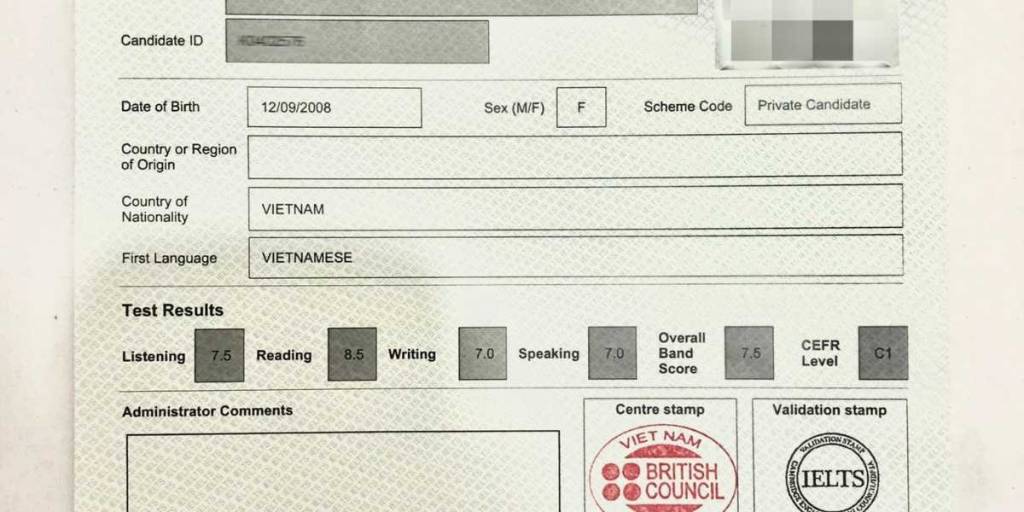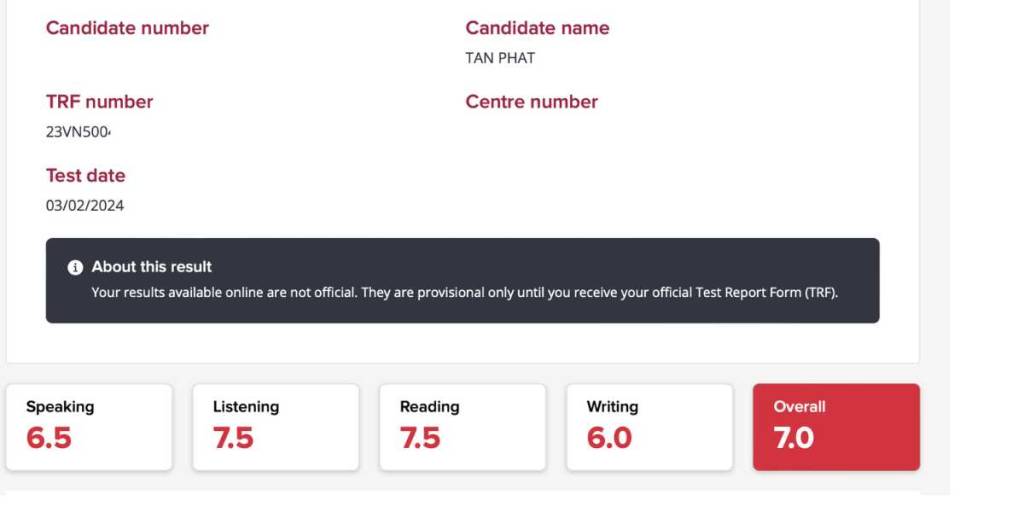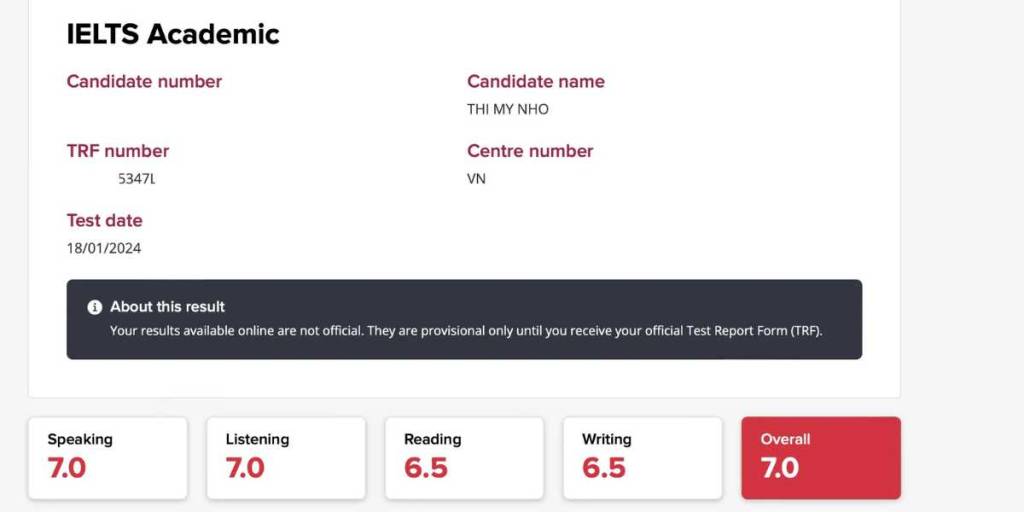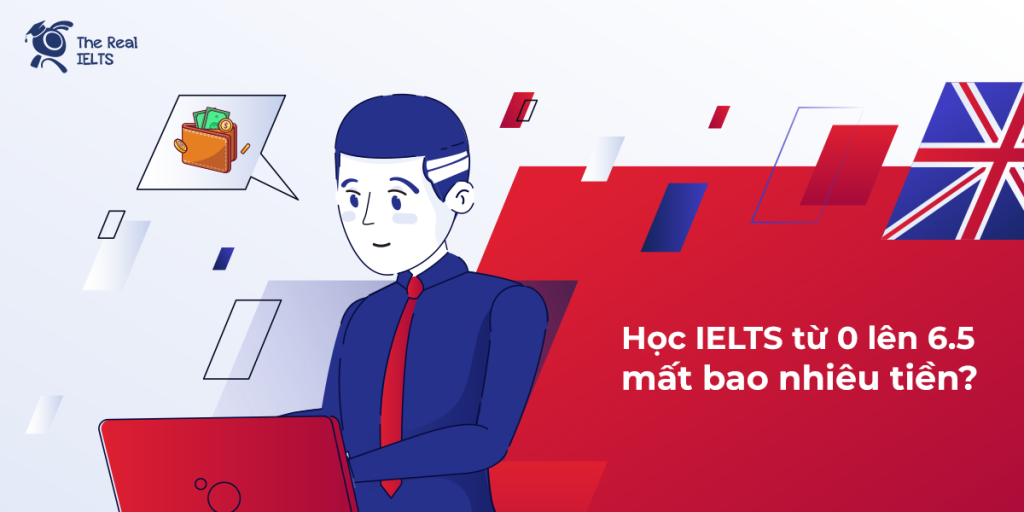Vai Trò Của IELTS Trong Việc Định Hướng Con Đường Học Tập và Sự Nghiệp Toàn Cầu


Chứng chỉ IELTS (International English Language Testing System) ngày càng trở thành một công cụ quan trọng trong việc định hướng học tập và sự nghiệp cho nhiều người, đặc biệt trong bối cảnh toàn cầu hóa hiện nay.
Chuẩn Bị IELTS: Hành Trang Cho Tương Lai Quốc Tế


Kỳ thi IELTS là một cánh cửa mở ra cơ hội học tập và làm việc trên phạm vi quốc tế, và chuẩn bị tốt cho kỳ thi này là bước đệm quan trọng để tiến gần hơn đến ước mơ của bạn.
Phụ Huynh Cần Biết Gì Về IELTS Trước Khi Con Du Học?


Trước khi cho con em tham gia vào hành trình học và thi IELTS, phụ huynh cần nắm rõ một số thông tin quan trọng để giúp con học tập một cách hiệu quả nhất.
IELTS: Bước Đệm Để Chinh Phục Các Trường Đại Học Hàng Đầu Thế Giới


Chứng chỉ IELTS (International English Language Testing System) không chỉ là một bài kiểm tra tiếng Anh mà còn là một công cụ quan trọng giúp sinh viên hiện thực hóa ước mơ du học và phát triển sự nghiệp quốc tế.
Tầm Quan Trọng của IELTS Trong Hành Trình Du Học và Phát Triển Nghề Nghiệp Quốc Tế


Chứng chỉ IELTS (International English Language Testing System) đã trở thành một yêu cầu thiết yếu cho những ai có ý định du học hoặc phát triển sự nghiệp tại các quốc gia nói tiếng Anh.
Tớ đã đạt 7.5 IELTS khi chỉ mới học lớp 8 như thế nào?


Cuối tháng 5/2022 tớ có đi thi IELTS ở Hà Nội và nhận về kết quả là 7.5. Và sau đây là một số chia sẻ của tớ trên hành trình đạt được 7.5 IELTS khi chỉ mới học lớp 8.
Nguyễn Tấn Phát – 7.0 IELTS


Phát là một bạn học viên rất bền bỉ. Xuất phát điểm của bạn là từ 2.0 IELTS, bạn đã trải qua liên tiếp hai khóa Level 2 từ 2.0 IELTS lên 3.5 IELTS và khóa Level 4 từ 5.0 IELTS lên 6.5 IELTS.
Lê Mỹ Nhớ – 7.0 IELTS


Học viên chăm chỉ của khóa Advanced IELTS, người chăm chỉ cày cuốc nhưng phong cách vẫn rất ung dung. Thành tích của bạn xứng đáng với công sức của bạn.
45 trường đại học xét tuyển với chứng chỉ IELTS năm 2024 mới nhất


Các trường hợp được xét tuyển thẳng vào Đại Học như đội tuyển THPT quốc gia hiện nay đã có thêm quy chế xét tuyển với các bạn có chứng chỉ 4.0, 5.5, 6.5 IELTS trở lên.
Những câu hỏi Extremely Hard Question trong Writing IELTS Part 7
Đây là phần 7 của dạng Extremely Hard Question. Cho dù bạn có định ôn tập Writing bất cứ chủ đề nào đi chăng nữa, vẫn sẽ có những kỳ thi có những câu hỏi nằm ngoài chủ đề đã ôn tập. Bây giờ bạn nên làm thế nào? Nếu như bạn học theo lộ trình cá nhân hóa tại TRI thì bạn chắc chắn sẽ giải quyết được vấn đề này. Còn nếu bạn chưa muốn học thì bạn cứ làm theo các dạng bài tập mà TRI biên soạn sau đây. Writing Task part 8 Can a single global government effectively address regional disparities and inequalities within and across countries? Do the advantages outweigh the disadvantages? Answer Agree Disagree 1. Uniform Standards: A global government could establish uniform standards for economic development, healthcare, education, and infrastructure, thereby reducing regional disparities. 1. Loss of Sovereignty: Countries may lose their sovereignty and cultural identity under a single global government, leading to resistance and conflict. 2. Resource Redistribution: A centralized authority could efficiently redistribute resources from wealthier regions to poorer ones, alleviating inequalities. 2. Corruption and Mismanagement: A single global government could become corrupt or inefficient, exacerbating disparities rather than addressing them. 3. Coordinated Efforts: Global coordination can enable effective responses to regional crises such as natural disasters, pandemics, or economic downturns. 3. Lack of Flexibility: Different regions have unique needs and challenges that may not be adequately addressed by a one-size-fits-all approach. 4. Conflict Resolution: A global government could mediate conflicts between regions, promoting peace and stability worldwide. 4. Tyranny and Oppression: Concentration of power in a global government could lead to tyranny and oppression, undermining human rights and freedoms. Summary: While a single global government could potentially address regional disparities through uniform standards, resource redistribution, coordinated efforts, and conflict resolution, the disadvantages of loss of sovereignty, corruption, lack of flexibility, and potential tyranny may outweigh these benefits. Balancing centralized authority with regional autonomy and diversity is essential to effectively tackle inequalities. Vocabulary Grammar Cấu trúc câu: Cấu trúc ngữ pháp: Bài viết gợi ý hoàn chỉnh cho chủ đề Extremely Hard Question Ensuring Transparency and Accountability in a One-World Government: Striking a Balance In envisioning a one-world government scenario, the imperative of transparency and accountability stands as a cornerstone principle. While this ambitious concept holds promises of global cooperation and unity, its realization hinges greatly on the establishment of robust mechanisms to uphold transparency and ensure accountability. On the side of agreement, proponents advocate for the implementation of strict transparency laws and regulations. They argue that requiring all government actions to be publicly disclosed would foster trust and legitimacy. Moreover, establishing independent oversight bodies to monitor governmental activities is seen as a critical safeguard against potential abuses of power. These bodies would play a pivotal role in ensuring compliance with transparency standards, thereby bolstering public confidence. Furthermore, technology emerges as a potent tool in this pursuit. Utilizing innovations such as blockchain could create immutable records of government transactions and decision-making processes, thereby enhancing transparency and reducing the risk of tampering or manipulation. Advocates also stress the importance of fostering a culture of civic engagement and participation. By empowering citizens to hold government officials accountable for their actions, this approach seeks to decentralize oversight and distribute responsibility among the populace. On the opposing side, skeptics voice concerns about the potential for government overreach and the loss of individual freedoms in a centralized system. They caution that while oversight bodies may be established with good intentions, there is a risk of corruption and manipulation within these institutions, undermining their effectiveness. Moreover, the complexity of technological systems poses a significant challenge. While blockchain technology holds promise, ensuring its accessibility and understanding for all citizens remains a daunting task. Additionally, concerns about geopolitical tensions and the potential for conflicts of interest within the one-world government raise questions about its ability to truly serve the interests of all humanity. In conclusion, while the advantages of transparency and accountability in a one-world government scenario are evident, striking a balance between these ideals and the practical realities of governance is paramount. By addressing concerns surrounding government overreach, technological complexity, and geopolitical tensions, we can pave the way for a more transparent and accountable global governance system, one that truly serves the needs and aspirations of all humanity. Đọc thêm bài trước cũng chủ đề Extremely Hard Questions: Những câu hỏi Extremely Hard Question trong Writing IELTS Part 6.
4 loại sách học IELTS cơ bản nhưng hiệu quả
Với nhu cầu học và thi IELTS như thời điểm hiện tại ( 2023 trở đi ), sách học IELTS đang trở thành một mặt hàng có nhu cầu tiêu thụ rất lớn.
Học IELTS từ 0 lên 6.5 mất bao nhiêu tiền?


Những ai đang có khó khăn về tài chính thì luôn luôn có một câu hỏi: học ielts từ 0 lên 6.5 mất bao nhiêu tiền?





